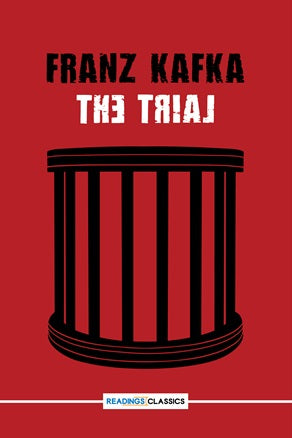Thinking, Fast and Slow by Daniel Kahneman (Author)
- Publisher: ENGLISH GENERAL BOOKS
- Availability: In Stock
- SKU: 28900
Rs.450.00
Rs.600.00
Tags: affordable prices , anchoring , best books , best books online , Best Price , best prices , Best Selling Books , best shop , bias mitigation. , Book shopping , bookshop , bookshop Multan , bookshop near me , bookshop online , bookshop online Multan , bookshopPakistan , business decisions , buy online books , cognitive biases , cognitive errors , cognitive mechanisms , cognitive science , Daniel Kahneman , decision theory , digital shopping , dual systems of thought , economic behavior , Fast and Slow , framing effects , good books , good booksonline , halo effect , heuristics , human cognition , Internet Shop , intuition , intuitive judgments , judgment , Kahneman insights , loss aversion , mental shortcuts , one stop shop , ONLINE BOOKS , Online Books Shop , online books store , Online Bookshop , Online Bookshop Pakistan , online bookstore , online shop , online shopping , Online Shopping Pakistan , OnlineShoppingPakistan , overconfidence bias , Pakistan Bookshop , PakistanBookshop , PakistanOnlineShopping , personal choices , policy-making , price cut , price-friendly Comprehensive , Prospect Theory , rationality , ReasonablePrice , reasoning , reduced price , risk and uncertainty , risk perception , secure shopping , Shopping , ShopSmartPakistan , System 1 , System 2 , Thinking , thinking processes , Virtual Shop
"Thinking, Fast and Slow" is a landmark book by Nobel laureate Daniel Kahneman that explores the dual systems of thought that drive human decision-making. Kahneman, a pioneer in behavioral economics, provides a detailed examination of how our minds operate through two distinct systems: the fast, automatic, and intuitive System 1, and the slow, deliberate, and analytical System 2. The book delves into the cognitive biases and heuristics that affect our judgments and decision-making processes.
Key Points
-
System 1 and System 2
- System 1 operates automatically and quickly with little effort or voluntary control. It's responsible for quick judgments and decisions based on intuition and heuristics.
- System 2 allocates attention to the effortful mental activities that demand it, including complex computations and logical reasoning. It is slower and more deliberate.
-
Cognitive Biases and Heuristics
- Kahneman explores various cognitive biases and heuristics that affect our decision-making, such as the availability heuristic, anchoring, and overconfidence bias.
-
Prospect Theory
- The book introduces Prospect Theory, developed by Kahneman and Amos Tversky, which describes how people make choices involving risk and uncertainty. It highlights how individuals value potential losses and gains differently.
-
Loss Aversion
- Loss aversion is a key concept in the book, referring to the tendency for people to prefer avoiding losses rather than acquiring equivalent gains. Losses are psychologically more impactful than gains of the same size.
-
Overconfidence Bias
- Kahneman discusses how overconfidence can lead to poor decision-making, as individuals often overestimate their knowledge, abilities, and the accuracy of their predictions.
-
Framing Effects
- The way information is presented or framed can significantly affect our decisions and judgments. Kahneman illustrates how framing can lead to different choices, even if the underlying information remains the same.
-
Anchoring
- Anchoring is the reliance on initial information or estimates when making decisions. Kahneman shows how initial anchors can influence subsequent judgments and decisions.
-
The Halo Effect
- The halo effect refers to the tendency to let our overall impression of a person or situation influence our judgments about specific traits or aspects.
-
Intuition vs. Reasoning
- The book explores the interplay between intuition and reasoning, examining when relying on intuition is beneficial and when it can lead to errors.
-
Implications for Decision-Making
- Kahneman provides insights into how understanding these cognitive processes can improve decision-making in various areas, including personal choices, business, and policy-making.
Conclusion
"Thinking, Fast and Slow" offers a profound and accessible exploration of how we think and make decisions. Daniel Kahneman's insights into the cognitive biases and heuristics that shape our judgments provide valuable understanding for anyone interested in psychology, behavioral economics, and decision-making processes.
════ ⋆★⋆ ═══
Writer ✤ Daniel Kahneman (Author)

























